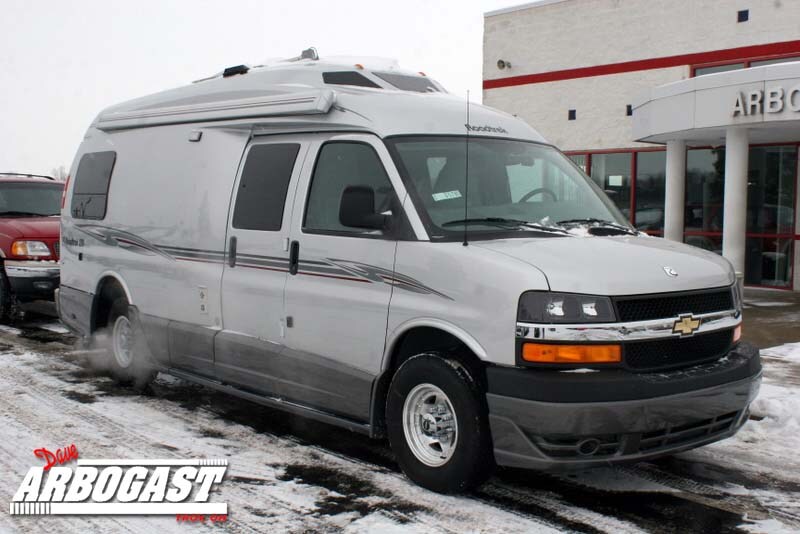
Larger vehicles are often designed with harsh winter conditions in mind, but there's nothing better than a good dose of prevention to keep your vehicle out of harm's way.
Here is a list of several things you can do to prep your conversion van for the winter.
1. Get the right oil change.
Oil changes are always necessary with any type of vehicle, but cold temperatures will cause oil to thicken up. Engines have a harder time with thick oil because of increased difficulty to lubricate the engine's parts. Just before the temperatures are scheduled to drop, be sure to get a quality oil change.
2. Monitor your battery and keep it clean.
The colder months don't exactly have the best effect on vehicle batteries. Corrosion is more likely, and the battery may have a harder time holding a charge than it would in normal, neutral temperatures. Check your battery before winter sets in, and be sure to clean away any corrosion that you see.
3. Keep track of the condition of hoses and belts under the hood.
The rubber and plastic in belts and hoses only grow more fragile and bitter as time wears on, and icy water and road salt coming into contact with them surely don't make matters any better. Inspect your hoses and belts before winter hits to avoid driving with a fractured/broken belt or leaky hose.
4. Stay on top of your tire pressure.
Your tires offer the traction you need to stay on the roads during icy conditions. A tire's air pressure can drop by 1 PSI per every 10 degrees, and this can have an incredible impact on how well your van can handle intense conditions. Find out how much pressure you need for your type of tires and try to keep the levels consistent with it.
5. Check your engine coolant.
Be sure to keep antifreeze filled in your van. A half and half mixture of antifreeze and water is also highly unlikely to freeze under incredibly low temperatures, so you can also save money by not using as much antifreeze solution in your engine.
6. Test your four wheel drive.
Four wheel drive is pertinent for any large vehicle during the winter, so it's a good idea to make sure yours is functioning properly before snowy and icy conditions take place.
7. Don't forget a winter survival kit!
No matter what type of vehicle you plan to travel in during winter weather, it's always a good idea to have a winter survival kit on hand just in case of an emergency.
8. Lastly, get acquainted with the van's manual and service schedule.
Many conversion van manuals come with particular instructions for colder climates and temperatures, and you should with your own before making any further accommodations. The manual will also disclose advice for how frequent you should be having your conversion van serviced, so be sure to adhere to its recommendations.